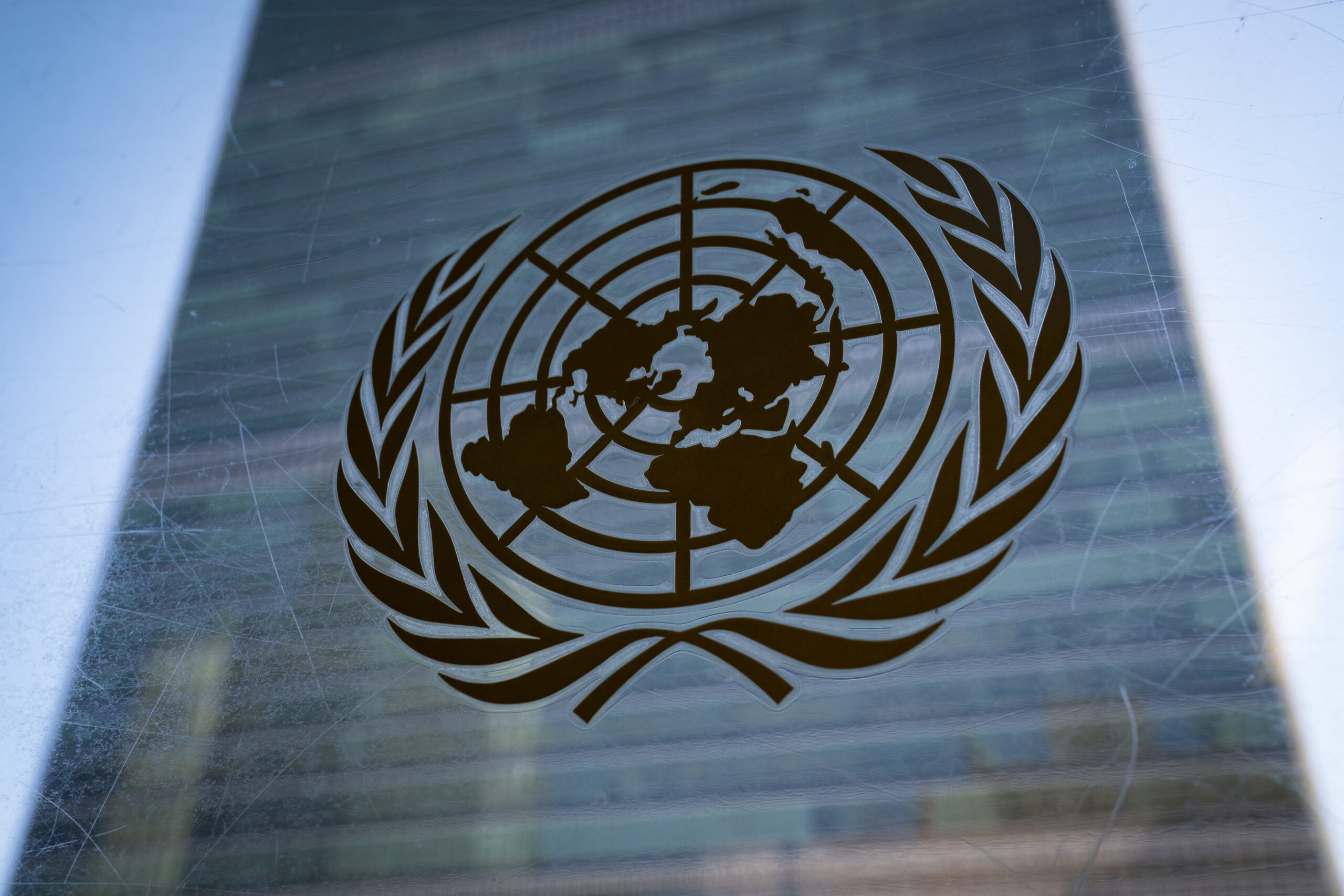The Rosa Luxemburg Stiftung New York and the Global Policy Forum are collaboration in a series of papers and expert activities addressing the shifting dynamics of multilateralism today, as the intersecting crises of climate, finance, food, and conflict call for the strengthening of international cooperation and the democratization of the United Nations (UN).
In this paper, Global Policy Forum’s Board Chair and Senior Policy Advisor Barbara Adams explores current approaches to democratizing the UN and opportunities for rights-based progressive policy advocacy.
Scroll down to read the full paper or download as pdf.
Executive Summary
Today’s interlocking crises have deepened existing inequalities, both within and among countries. They have also exposed another crisis, that of multilateralism and global governance, embedded in processes and institutions established before most UN Member States had political independence, notably in the Security Council and the Bretton Woods Institutions (BWIs). Multiple failures of governance—including climate, food, health, conflict and finance crises—have landed on the UN agenda at the highest level, and have brought increasing attention to the need a more egalitarian and democratic multilateral system with a more equitable financial structure.
Pointing to “a morally bankrupt financial system in which systemic inequalities are amplifying societal inequalities” the UN Secretary-General António Guterres explained that countries desperately in need of debt relief could not get that support because “the rules are not made to allow it.” “Something is fundamentally wrong with our economic and financial system,” he said. “The global financial architecture is at the heart of the problem.”
The international financial architecture is dominated by the BWIs, which were created in the immediate post-World War II era. It is increasingly recognized that the mandates and functioning of the BWIs do not respond fairly to the priorities and challenges of developing countries. Nor do they assess social and ecological priorities in their loan conditions or assessment of the economic health of countries, both of which have a dominant effect on access to private capital markets and on countries’ ability to borrow.
Reforming the international financial architecture (IFA) is high on the multilateral agenda that includes two upcoming UN Summits, the SDG Summit in 2023 and Summit of the Future in 2024. The policies and functioning of the global economy and financial architecture affect all states and peoples, but lack accountability to human rights and ecological justice. This bias is also reflected in the dominant role of GDP as the current measure against which development is measured and economic policies primarily determined.
The focus on economic development fails to address global wealth inequalities and negatively impact social, ecological and gender justice policies globally. It also has deprived many developing countries of decades of development financing and the ability to strengthen their domestic resource base. Much scholarly work has deepened the critique and developed alternative indices that have go beyond or replace gross domestic product (GDP). However, the use of an alternative metric has only recently been included on the global agenda for Member State deliberations.
The current work streams of Beyond GDP and IFA reform were featured in the work of the High-level Advisory Board (HLAB) on Effective Multilateralism, established by the Secretary-General to provide analysis and recommendations for Member States in the lead-up to the Summit of the Future. So too was the inadequate accountability of the private sector. The HLAB report criticises the lack of multilateral treaties governing corporate partnerships, explaining that reliance on state regulation alone can lead to “a system where a relatively small number of large private sector actors can influence processes without being held to account”. Such reliance allows for selective enforcement whereby, for example, corporations must behave better in the country of “origin” but can trample rights in other countries and so benefit the country of origin as well as powerful shareholders.
Tackling the democratic deficit in global decision-making also necessitates a new funding compact for the United Nations system. Major UN priority areas, human rights and sustainable development, have been badly resourced or under-resourced. The lack of commitment to core funding for sustainable development and the heavy use of earmarked funding have steered the UN development system into responding to major donor priorities before developing country ones.
To close the democratic deficit in multilateral decision-making, the UN must be empowered to act and held accountable in some key areas. These include:
- closing of the accountability and policy gaps between human rights and economics by adherence norms and standards that govern economic policies not the reverse (IFA reform);
- new measurements of progress for policy determination that include human rights, gender equality and ecological value (Beyond GDP);
- a new funding compact for the United Nations;
- robust monitoring and accountability by national governance and public institutions of how people are represented in multilateral and cross-border decision-making spaces; and
- enhancing peoples’ influence in policy making via domestic parliamentary oversight, especially of the budget and CSO advocacy, as well as exposure of double standards.
There are promising initiatives that have been proposed or are on the UN agenda that would contribute to the development and adoption of a human rights economy, including:
- a multilateral treaty on TNCs;
- loss and damage funding;
- a UN tax convention; and
- championing external public finance for human rights and sustainable development instead of market incentives that often protect or even promote IPRs that privilege corporations over human rights.
Fundamentally, the UN can never be a space where everyone can bring their issues and concerns directly, but the UN agenda, deliberations, outcomes and agreements need to address the lives of peoples in all countries.
Proposals for addressing the prevailing power disparities reveal the tensions between those who accept power-defined realities and try to align with the winners or limit the damage, and those who want fundamental change that reduces and redistributes the power of the dominant. Among small and medium states these tensions are evident, as they are in the UN system itself and among CSOs. While parts of the UN system promote multi-stakeholder partnerships, the OHCHR documents intimidation and reprisals, practiced by state and non-state actors.
Rejecting governance with a “winners take all” mindset requires challenging the systematic asymmetry and recognizing that power imbalances cannot be corrected by persuading the most powerful players to share or not use their power.
Rigorous adherence to UN norms and standards with robust monitoring by national public institutions, which is led and scrutinized by parliaments and CSOs, is essential to guarantee that governments acting in UN and multilateral governance processes are accountable to their constituencies and peoples.
The upcoming high-level meetings and summits addressing multilateral governance structures signifies both the recognition of the exigency and the motivation of Member States to make systemic changes. Whether they will be held accountable for doing so depends on political organizing, mainly at national levels. This is a rare political moment and engagement will be crucial to ensure a more democratic United Nations.
About the author: Barbara Adams is President of Global Policy Forum and part-time professor at the New School. Trained as an economist, Barbara Adams’ experience and expertise have many facets – as a researcher and teacher, as a CSO policy advocate, and with a long tenure working for the United Nations. A consistent theme has been rights and justice in multilateralism, governance and sustainability. She has authored and co-authored many articles, reports, commissioned studies and books, and is a regular contributor in the Global Policy Watch briefings series and the annual Spotlight Report on Sustainable Development.
Header Photo Credit: UN Photo/Mark Garten. “Secretary-General António Guterres (centre right) meets with Ellen Johnson Sirleaf (centre left) and Stefan Löfven (second from right), Co-Chairs of the High-level Advisory Board on Effective Multilateralism. April 18, 2023”



